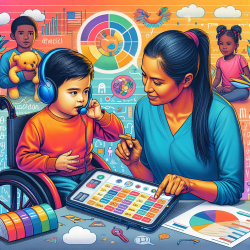Introduction
The COVID-19 pandemic reshaped many sectors, including higher education, forcing institutions to rapidly adapt to unprecedented circumstances. A recent study, "Discourse about higher education on Twitter in early phases of COVID-19: A crisis management social network analysis," provides valuable insights into how social media, specifically Twitter, was utilized as a tool for crisis management. This blog will explore how practitioners, particularly those in online therapy services like TinyEYE, can leverage these findings to enhance their skills and improve outcomes for children.
The Power of Social Media in Crisis Management
Social media platforms, notably Twitter, have become critical channels for information dissemination and crisis communication. The study analyzed tweets containing the hashtag #highered during key decision points in the early stages of the pandemic. It revealed that Twitter was extensively used to share information about the transition to online learning and the implications of COVID-19 on higher education.
The research highlights the importance of social media as a participatory and collective activity, offering a platform for individuals to share insights, frustrations, and solutions. This participatory nature makes it a valuable tool for understanding population sentiments and information spread during a crisis.
Key Findings and Their Implications
The study identified several key influencers within the #highered network, including educational experts and faculty members who shared resources and strategies for effective online teaching. This shift from traditional news outlets to individual influencers underscores the evolving nature of information dissemination during a crisis.
For practitioners in online therapy, these findings suggest the potential to harness social media for professional development and information sharing. By engaging with key influencers and participating in relevant online communities, practitioners can stay informed about the latest strategies and resources to enhance their services.
Actionable Insights for Practitioners
- Engage with Influencers: Follow and interact with key influencers in your field to gain insights and access valuable resources.
- Participate in Online Communities: Join discussions and networks related to your area of expertise to share experiences and learn from others.
- Utilize Social Media for Professional Development: Leverage platforms like Twitter to stay updated on the latest research, strategies, and tools that can improve your practice.
- Promote Evidence-Based Practices: Share data-driven insights and successful strategies with your network to contribute to the collective knowledge base.
Encouraging Further Research
While the study provides valuable insights, it also highlights the need for further research into the validity of information shared by individuals during crises and the potential impact of misinformation. Practitioners are encouraged to critically evaluate the information they encounter and contribute to research efforts that explore the role of social media in crisis management.
To read the original research paper, please follow this link: Discourse about higher education on Twitter in early phases of COVID-19: A crisis management social network analysis.










